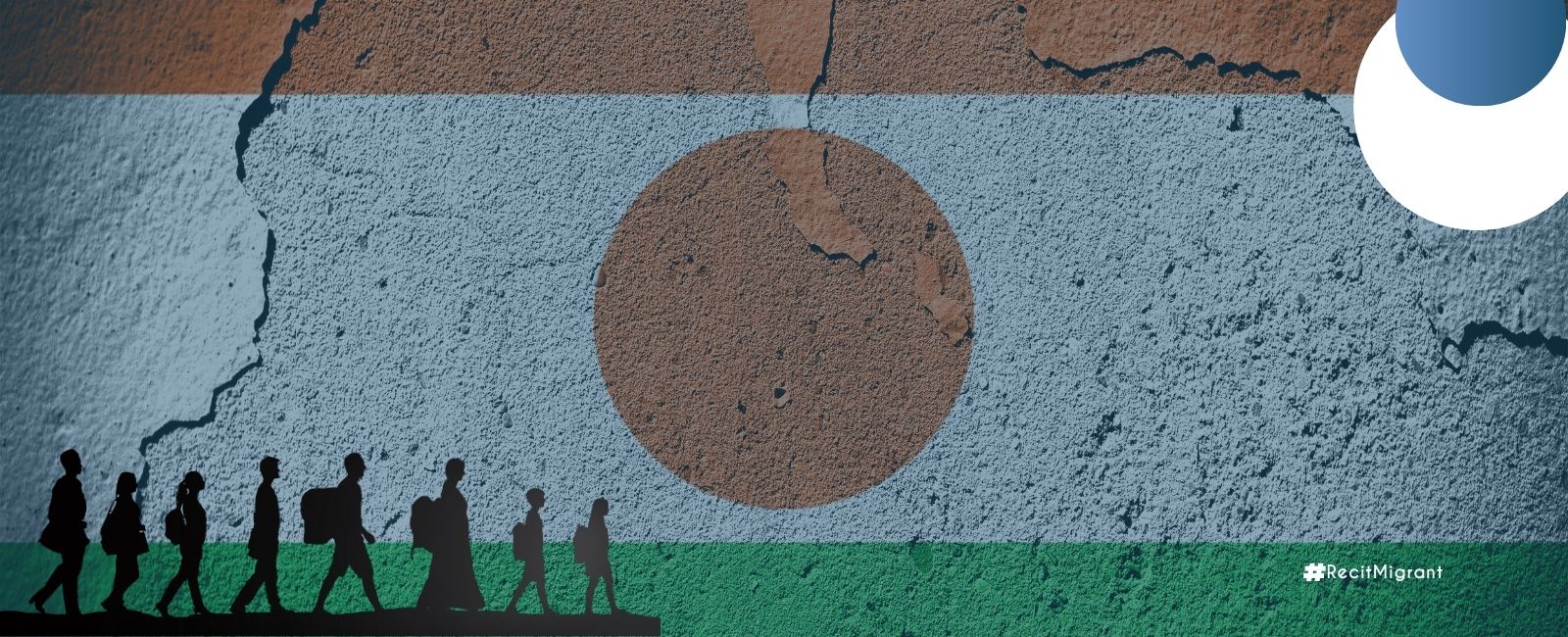

In Kourtere, a neighbourhood in the capital city of Niger, Niamey, families from Makalondi – a town and commune in the west of the country – are striving to rebuild their lives. Among them is Daouda, a father of five who now lives in a makeshift shelter. Having been forced to flee armed violence, he now faces another hardship: internal exile. This account traces the journeys of people who, without ever crossing a border, find themselves as strangers in their own land. Balancing fragile hopes with harsh realities, it seeks to give a voice to a population that is all too often rendered invisible, yet whose resilience deserves recognition.
Quest for a better tomorrow
Daouda left Makalondi with his wife and five children to escape the abuses inflicted by armed groups operating along the border with Burkina Faso. “We arrived in Niamey with nothing, hoping to find a better future for our family,” he recalls. He now shares a makeshift shelter in Kourtere with other displaced people from the same village.
However, the neighbourhood is already struggling with limited social infrastructure and is now hosting a displaced population living in extremely precarious conditions. Their shelters, built from salvaged materials, offer little protection. Access to drinking water is irregular, and sanitation facilities are inadequate. Children are at a heightened risk of disease and are deprived of a stable education.
According to the latest figures from the United Nations High Commissioner for Refugees (UNHCR), Niger is hosting around 460,000 internally displaced persons (IDPs), accounting for nearly half of all individuals under the UN agency’s mandate in the country. The Tillabéri region, which is Daouda’s home region, accounts for 48% of these displaced persons. This mass displacement is the direct result of ongoing insecurity in border areas, where repeated armed attacks have forced thousands of families to flee their homes.
Forgotten People of Kourtere
In Kourtere, men try to provide for their families by working as agricultural labourers. Daouda is one of many who plough the fields of local landowners in exchange for a daily wage of between 1,000 and 2,000 CFA francs. “It all depends on the size of the field to be ploughed,” he explains. Though arduous, this work is one of the few sources of income available. Yet the absence of institutional support is keenly felt. “We have no assistance. We live in precarious shelters and our children are exposed to all kinds of diseases,” he laments. Meanwhile, local authorities, who are already under pressure to maintain basic urban infrastructure, struggle to provide adequate support to this vulnerable population.
In collaboration with its humanitarian partners, the Nigerien government has set up systems to register and provide assistance to displaced populations. However, the regularity of data collection and the frequency of validation are limited, which makes coordinating large-scale responses challenging. Fluctuations in the figures reflect the complexity of monitoring internal displacement.
Amid this uncertainty, calls for solidarity are growing. Daouda hopes that the authorities and well-wishers will support displaced families. “We hope that the authorities will help us,” he says, his voice conveying both fatigue and determination.
Internal displacement, amajor challenge in urban areas
The situation in Kourtere highlights the challenges involved in managing internal displacement in urban areas. Unlike organised refugee camps, neighbourhoods such as Kourtere host displaced populations under informal and often precarious conditions, with no clear framework for intervention. This complicates the delivery of aid and the identification of specific needs.
Children are among the most affected. Deprived of an education and exposed to health risks, they grow up in an unstable environment. Despite their families’ efforts to integrate, they face multiple obstacles, including a lack of identity documents, inadequate housing and limited access to healthcare.
The situation of internally displaced persons in Niger is part of a broader regional context of instability. Conflicts in Mali, Burkina Faso and Nigeria have a direct impact on Niger’s border areas. Although Niger is relatively stable, it is not immune to the effects of cross-border insecurity.
The future remains uncertain for Daouda and the other fathers in Kourtere. Yet their resilience commands respect. Every day, they work hard to give their children some sense of normality. Their stories serve as a reminder that behind the statistics lie real lives, hopes and a determination to rebuild.
Recently Published
Subscribe to our newsletter!
Quick Links


